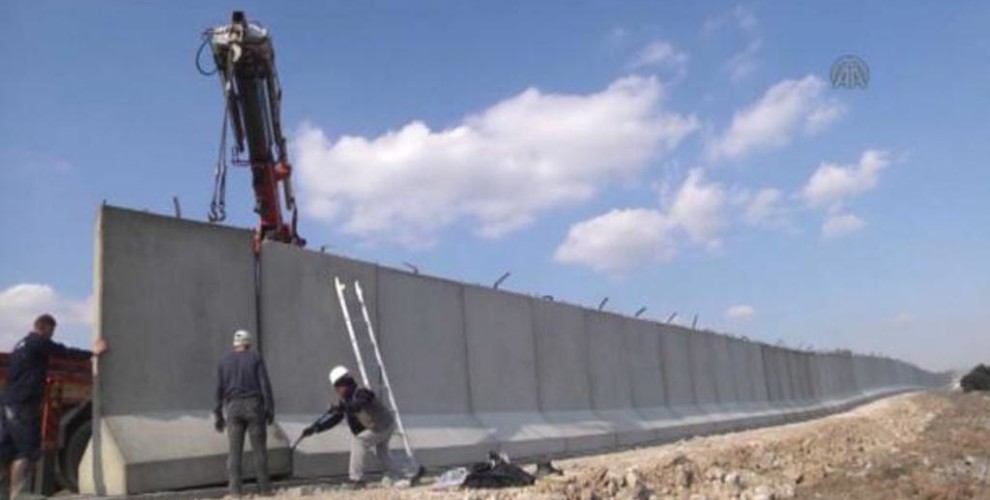Local people protest the wall construction on Turkey-Iran border
The residents of Van’s Aşağı Çilli village protest the construction of a wall on the border between Turkey and Iran.
The residents of Van’s Aşağı Çilli village protest the construction of a wall on the border between Turkey and Iran.

The wall between Turkey and Western Kurdistan (Rojava/Syrian Kurdistan) is going to be the third longest wall in the world once it’s completed. A wall made up of concrete blocks is put up along the 911 kilometer long Syrian border. Ditches are dug in front of the wall and watch towers are put up.
Meanwhile, the ditches and walls combination is being built between the Southern Kurdistan and Northern Kurdistan along Cizre and Silopi as well. Outside of this region, the mountainous terrain doesn’t allow for border walls, so there will be more control with armored mechanized units stationed on top of prominent hills on the Southern Kurdistan border. With this, they are planning to hold 18 prominent hills under control. They believe they will defend themselves this way.
Turkey is building another wall, some 144 kilometers long, on the Iranian border. They are planning on controlling Kurdistan by dividing it with walls from end to end.
The village of Aşağı Çilli (Cilîya Jêr) in Van’s Çaldıran district is close to the border with Iran. Residents of the village are close relatives with the Kurds living on the Iranian side of the border. For the past four years they can’t meet with their relatives because of the ditches and recently constructed military outposts in the region. The local people have been aggrieved once again after they were forced to stop border trade in the face of increasing attacks and threats, and the construction of a wall now.
60 of the total 80 families in the village have left home already and moved somewhere else under these challenging circumstances that make life even harder for them. Members of the remaining 20 families tell that they will also have to leave the village if it continues like this.
“People in seven villages on the Iranian side of the border are our relatives. Now they are constructing a wall between us and them. Our children aged 13-14 are leaving the village and going to Turkish cities as construction workers. Only 20 houses are left from the total 80 in the village. The remaining residents are all old elderly and children” said Abdulvahab Yıldız, one of the remaining residents of the village.
Yıldız remarked that the border area was first covered with mines, then with barbed wires and now with concrete blocks, saying; “Building a wall on the border means death sentence for the Kurds. This wall is a barrier for not only border traders but all the Kurdish people. They are trying to close the eyes, hands and roads of the Kurdish people.”
Another resident Resit Çiftçi said that it is getting more and more difficult for them now to earn a living after the Turkish state’s obstruction of border trade. He told that; “We can no more do border trade in any way now. This border crossing is at a 15 minutes distance to us when we ride a horse, and 30 minutes when we walk. Now that it is getting blocked, we will have to travel for four hours to reach the other border crossing which is too far away. On the other hand, we won’t be able to visit our relatives on the other side of the border when these concrete blocks are erected. We do not want this wall here.”